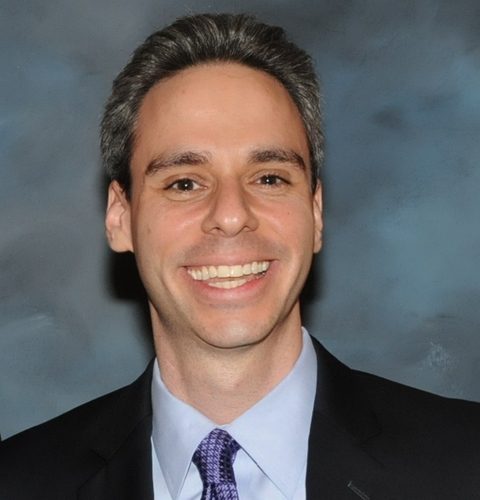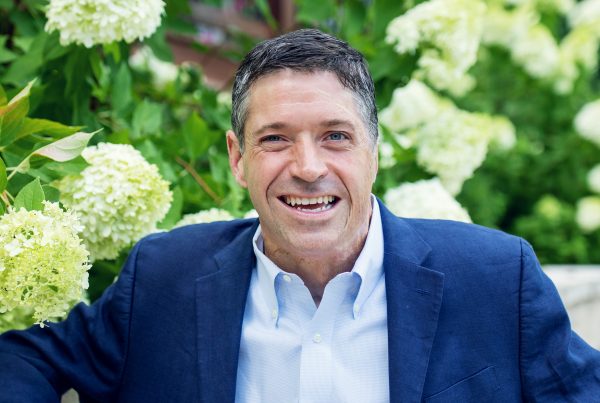Scott Singer
What is Scott Singer running for?
That was the reaction I got from people who watched or heard about the Boca Raton City Council member’s 10-minute-plus speech last week about why he opposed the University Village project. They had reason to wonder.
Council members routinely explain their reasons for supporting or opposing controversial proposals. No council member in recent memory has explained himself at such length and at such a decibel level.
Approving the nearly 80-acre project, Singer said, could create “a sovereign nation” in the middle of the city. He called the proposal “outlandish,” and full of “gaping holes.” The developer would be able to make “tens of millions” more because of what Singer characterized as extra development rights. Approval would break the public’s “trust in their elected officials.” To any objective viewer, Singer was trying to publicly shame any colleagues who disagreed with him.
Singer was the only vote against University Village, which the council approved after adding conditions to address issues that other council members and residents who live near the site on Spanish River Boulevard had raised. So Singer’s tirades—like most tirades—didn’t persuade anyone, although it did get him loud applause from those opposed to the project.
“He was trying to posture. I won’t say grandstand,” said Mayor Susan Haynie. “He expressed his position early. We went on to address every concern.” Singer actually voted to approve the changes, but then voted against the project. “He had nowhere to go,” Haynie said.
Singer objected to what he considered uncertainly that the project would be built as advertised—with a certain look and a certain mix of uses. University Village would be a Planned Mobility Development, built in phases. At one point, Singer and attorney Charles Siemon, who represents University Village, had an exchange on this point.
Singer asked whether the developer could seek to build, say, fewer apartments and more offices. They generate more traffic.
Yes, Siemon said, but the developer would need council approval for such a change, because it would change to the project’s master plan. Siemon’s response undermined Singer’s claim that University Village could become a “sovereign nation” setting its own rules by taking advantage of what he called “malleable zoning.” The new conditions also firmed up the city’s oversight. Council and staff review of University Village will go on for years.
Haynie was on the council in 2010 when the city set rules for Planned Mobility Developments, which emphasize transit and other options to reduce car traffic—a goal of the city’s comprehensive plan. Haynie said Singer “might not have a clear understanding” of such developments, which must adhere to a set concept but can have flexibility. Haynie also said she had been “remiss” in not explaining for the audience that Singer’s additional half-million square feet of development was not really anything extra. The city had anticipated it, and the developer met traffic requirements for it.
I called Haynie because of speculation that Singer’s comments were a sign that he will challenge her in March 2017, when their respective terms are up. Another option if Singer is looking for another office would be the Florida House seat of Bill Hager, who is term-limited in 2018, or a run next year for the state Senate.
Yet Singer told me: “It wasn’t a speech. I had been writing things down as I went during the meeting.” He justified his “lengthy remarks” by calling University Village “a significant departure” from normal zoning.
In our interview, Singer said he had spent “dozens of hours” reviewing the project. “I know the quantity of time I put in, and I felt it was necessary to draw a line.” Singer complained that the city based traffic projections on a study from two years ago.
Regarding the length of his comment, Singer acknowledged that it had been “an outlier, but it was an outlier proposal. I felt (the comment) was necessary. My tendency may be to speak a little much.”
Still, Singer said he had not been campaigning. “I regret it if anyone perceived it that way.” Some did.
Sober house dismayAdd Santa Claus to the list of those who dislike sober houses in single-family neighborhoods of Delray Beach.
At Tuesday night’s city commission meeting, residents of Lakeview and Sherwood Park west of Interstate 95 complained about recent home sales to private sober house operators. Though residences for people coming out of substance abuse treatment have sprouted all over Delray Beach, none are in these neighborhoods.
Speakers echoed the fears and frustrations of those in Delray and Boca Raton who have fought the proliferation of this unregulated industry. One speaker incorrectly referred to a sober house as a “rehab center.” Treatment centers are licensed and regulated. Another characterized sober house residents as “drug addicts of low moral character” who are part of an “invasion.” One resident came dressed as Santa Claus, making all the predictable comments about naughty and nice.
As Mayor Cary Glickstein told the speakers, he and the commissioners are just as frustrated. Under federal law, those in recovery are a protected class. Local governments can’t create exclusionary housing laws. Boca Raton tried, and lost in court. That federal position, however, didn’t anticipate how many fraudsters would operate sober houses or that the homes could become such as industry.
Commissioner Mitch Katz represents Lakeview and Sherwood Park. He had met with the residents before the meeting, and will meet today with city staff, City Attorney Noel Pfeffer and Police Chief Jeffrey Goldman. Katz told me that while he understands the legal limitations on the city’s power and that Congress must provide the ultimate solution, “I heard some potentially creative ideas” from the residents. Katz wonders, for example, if the city could assign more code officers to monitor sober houses.
That might work if the city knew the location of all sober houses, but none have had to register, so no one in Delray is sure. Still, these residents seem to know the location in their neighborhood.
Some sober houses, of course, are well run and don’t harm neighborhoods. Those operators would have nothing to fear from regulation. Unfortunately, at this point the bad operators also have little to fear.
Delray dog beach
Far less important—but nearly as emotional—an issue than sober houses in Delray Beach is a beach dog park.
Delray, like Boca Raton, has a landlocked dog park. Unlike Boca, Delray doesn’t allow dogs on the public beach, though Mayor Cary Glickstein acknowledged that “it happens all the time. There’s sort of a wink-and-nod approach” to issuing citations.
On Tuesday, the commission took another step in the city’s evaluation of a dog-friendly beachfront. One stretch could be at the north end, past the sailboat rental concession. Another could be at Anchor Park, on the south end of the public beach.
The south location, Glickstein said, is “more controllable.” Those living farther north, though, wouldn’t want to walk that far. At either or both locations, he said, the city likely would restrict dog access to between 7 a.m. and 9 a.m. “The afternoon would be more problematic,” because the beach is more crowded.
Dog owners would have to buy licenses. In Boca Raton, residents pay $30 per dog and non-residents pay $165. Weekend passes are $10. The dog beach is at the north end of Spanish River Park.
The fee is necessary because the city must pay for rangers to enforce the rules—lifeguards shouldn’t do it— and not just during dog-friendly hours. “That means citations,” Glickstein said. “It would have to pay for itself.” Bringing a dog to the beach “is a privilege.”
Some speakers Tuesday night, however, claimed that it’s a right. Delray Beach has a long way to go on this issue. Expect to hear a lot of barking on both sides.
Weather
November was unusually warm. Fortunately, it also was unusually wet.
According to the South Florida Water Management District, the region got almost 40 percent more rain last month than normal. The forecast was for a wetter winter, and anything extra reduces the chance of drought next year.
New districts approved
It’s all but official. The Florida Supreme Court ruled Wednesday that the maps of local congressional districts will change for 2016.
Lois Frankel’s District 22 still will include Boca Raton and Highland Beach, but 85 percent of it will be in Broward County. It currently includes coastal areas north to Palm Beach.
Ted Deutch’s District 21, which includes a portion of northwest Broward along with West Boca and West Delray, will pick up much of Frankel’s old district and will be 100 percent within Palm Beach County.
The changes arose from a lawsuit contending that the Legislature violated the Fair Districts Amendments when it drew the congressional map in 2012. Some incumbents who don’t like the new map may sue in federal court, but every other such challenge to the amendments—which voters passed in 2010—has failed.








